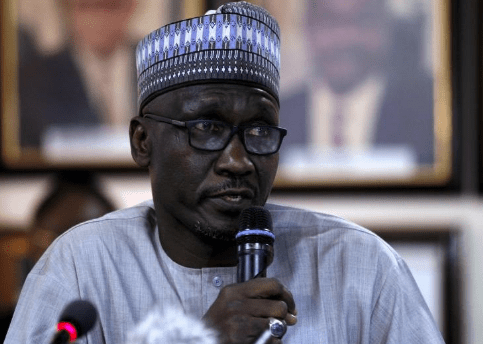 The Nigerian National Petroleum Corporation (NNPC) says it pays between N100 billion and N120 billion every month to subsidise Premium Motor Spirit (PMS), also known as petrol.
The Nigerian National Petroleum Corporation (NNPC) says it pays between N100 billion and N120 billion every month to subsidise Premium Motor Spirit (PMS), also known as petrol.
NNPC Group General Manager (GMD), Mele Kyari, disclosed this at the weekly presidential ministerial media briefing on Thursday at the State House in Abuja, the nation’s capital.
He said the product is currently being sold below the cost of importation, causing the NNPC to pay the difference.
While refraining from calling the payment a subsidy regime, Kyari said the NNPC pays between N100-120 billion a month to keep the pump price at the current levels.
The GMD said: “Today, NNPC is the sole importer of PMS, we are importing at market price and we are selling at N162 per litre today. Looking at the current market situation today, the actual price could have been anywhere between 211 to around 234 naira to the litre.
“As we speak today, the difference is being carried on the books of the NNPC and I can confirm to you that the NNPC may no longer be in the position to carry that burden and because we can longer afford to carry it on our books.
“As we speak today, I will not say we are in subsidy regime but we are in a situation where we are trying to exit this underprice sale of PMS until we come in terms of the full value of the product in the market.
“PMS sells across our borders anywhere around N300 to the litre and in some places up to 500 to N550 to the litre.
“Our current consumption is evacuation from the depots about 60 million litres per day, we are selling at N162 to the litre, and the current market price is around N234, the actual market price today.
“So, the difference between the two, multiplied by 60 million x 30 will give you per month. I don’t have the numbers now, this is simple arithmetic that we can do but if you want exact figures from our books, I do not have it at this moment but it’s anywhere between a hundred billion and up to 120 billion naira per month. I don’t have the exact number.”
He stated that the NNPC can no longer bear the monumental cost, saying market forces must be allowed to determine the pump price of petrol in the country in the nearest future.
When asked when the corporation would stop subsidising petrol, Kyari declined to give a specific date.

NNPC Ltd Enters Final Stages Of Preparation For Public Listing
Dangote Refinery Halts Naira Sales, Cites Dollar-Denominated Crude Costs
Court Orders Arraignment Of Ex-First Bank Executives Over Alleged ₦12.3Bn Fraud
Renaissance Energy Completes Landmark Acquisition Of SPDC